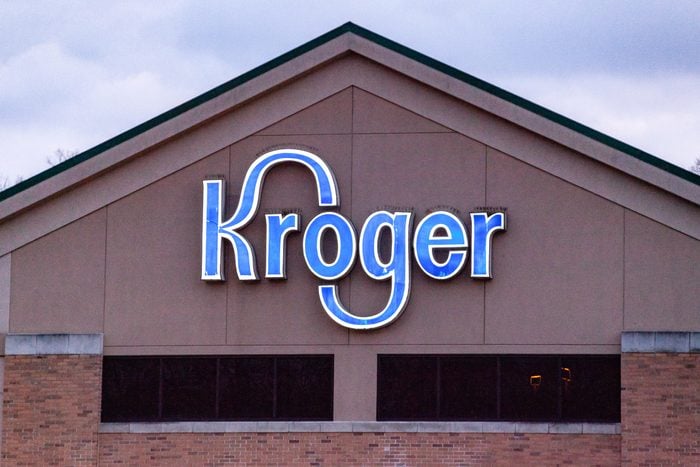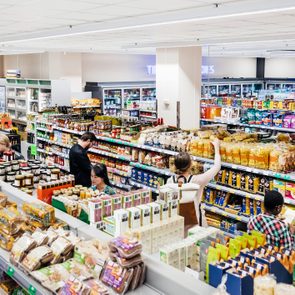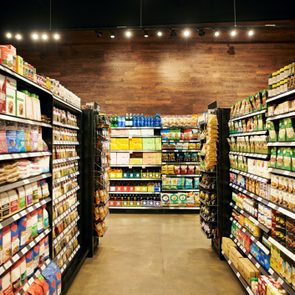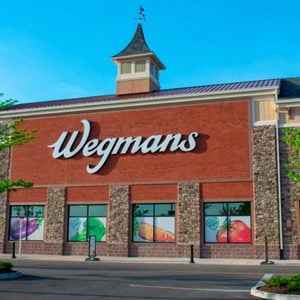What the Kroger and Albertson’s Grocery Merger Could Mean for Your Wallet
Updated: Jan. 05, 2023

Kroger and Albertsons are merging to become the second largest grocery retailers in the US. What does this mean?
In a $24.6 billion deal, Kroger is acquiring Albertsons to create a supermarket powerhouse that will rival Walmart. Together, Kroger and Albertsons employ 700,000 people in 5,000 stores serving 85 million households, and have a combined annual revenue of $210 billion, only $10 billion less than Walmart. The deal is expected to go through in early 2024, yet some experts think it could be stalled by regulatory scrutiny.
How many stores could be affected?
“In order to clear antitrust hurdles, Kroger and Albertsons would likely have to divest up to 600 stores which means potentially tens of thousands of jobs lost,” explains Ayesha Whyte, an employment attorney and Chief People Officer at Dixon Whyte, LLC, a human resources and legal services firm. “The United Food and Commercial Workers (UFCW) is pushing back hard on the deal,” Whyte says, “Including threatening potential strikes as both Kroger and Albertsons have a heavily unionized workforce.”
Customers shouldn’t worry about major in-store changes in the short term. “Many grocery chains operate under multiple brand names for years after mergers, slowly phasing one brand out as stores close,” says Ben Michael, VP of Operations, Michael & Associates, “We may see some price increases and stagnant wages in places where stores were in close, direct competition, but that won’t be the case everywhere.”
How will the merger impact consumers?
“Given the huge run-up in prices over the last 18 months, it is hard to predict future prices,” says David D. Schein, a Houston attorney and professor of Strategic Management and Business Law at the University of St. Thomas. “Most mergers mean less choice and higher prices,” Schein says.
We are currently experiencing a cost-of-living crisis, as the International Monetary Fund (IMF) reports inflation soaring over 8% this past year. Many consumers are concerned and wondering when it will end, but Kevin Kirby, Head of Sales for Wise Athena, a pricing and trade prediction agent, is optimistic. “The merger should allow them to scale and optimize their distribution strategy to decrease the amount of empty shelves shoppers,” Kirby says, “And it will allow them to expand and strengthen their private label offerings, which have been an area of growth for retailers as inflation soars.”
Will the merger help customers save money?
In addition to increased private-label options—a smart way to save money—customers should see lower prices from this deal. “Between increased buying power and decreases in logistics costs, the combined company would have margins to pass on to consumers either via everyday pricing or promotions,” Kirby says.
More ways to save on groceries
We ranked grocery stores based on value, which is a good place for customers to start when trying to save money at the checkout line. There are supermarket tricks to save you money and grocery store shopping secrets such as using competitor’s coupons, buy-one-get-one deals, bargain bins and more.
Sometimes saving money looks like not always shopping at your favorite store. Grocery shopping online is a great strategy as it’s easier to preview prices and meal plan based on the best deals of the week.
Sources
- Ayesha Whyte, an employment attorney and Chief People Officer at Dixon Whyte, LLC
- Tim Campbell, Director of Insights at CommerceIQ
- Ben Michael, VP of Operations, Michael & Associates
- Kevin Kirby, North American Head of Sales for Wise Athena, an Artificial Intelligence pricing and trade prediction agent
- David D. Schein, a Houston attorney and professor of Strategic Management and Business Law at University of St. Thomas
- International Monetary Fund, “Countering The Cost-Of-Living Crisis” (October 2022)



